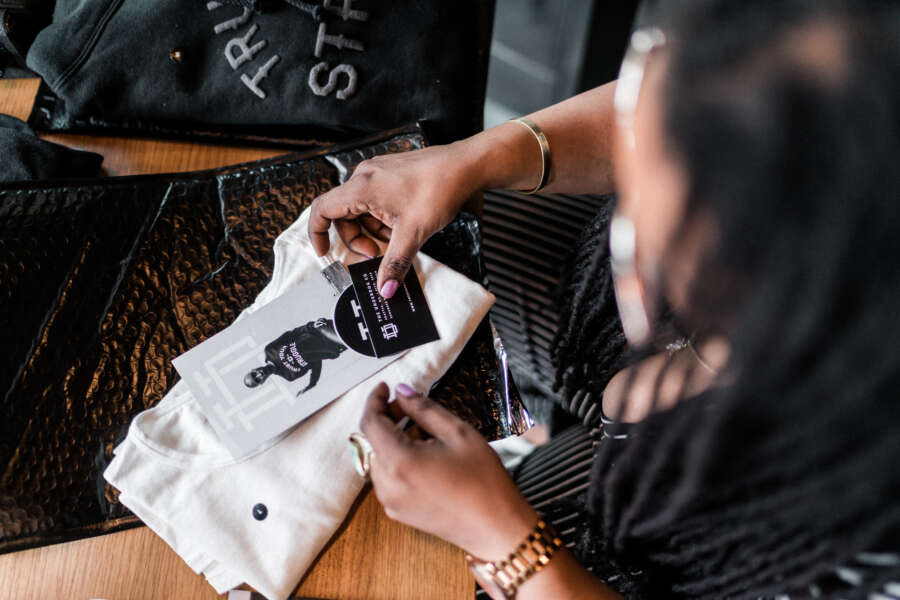
By: Nate Holmes, Product Marketing Manager, Widen
Brand association – the mental connection a customer makes between your brand and a concept, image, emotion, experience, person, interest, or activity. Defining it is simple, but brand associations can be immediately positive or negative, and either way it heavily influences purchasing decisions. So getting it right is critical, but not easy.
Of course, brands strive to create positive associations and ideally, they are immediate. For example, when you think of binge-watching box sets – likely you think of Netflix. When you want a takeaway? Deliveroo. Sportswear? Nike or Adidas spring to mind. At their best, these associations both differentiate a brand from the competition and create a response that makes people want to buy the product or service.
The right association for your brand
There are many types and combinations of brand associations, but it’s helpful to focus on a few that are recognisable, influential, and achievable. Here’s a shortlist of the most familiar types that you can create.
- Celebrity-based (e.g., Harry Kane and Nike)
- Founder-based (e.g., Arianna Huffington and Huffington Post)
- Character-based (e.g., Ronald McDonald)
- Word or tagline association (e.g., Nike’s “Just do it” tagline)
- Activity-based (e.g., The North Face and adventure activities)
- Luxury-based (e.g., Rolex watches)
- Customer-service-based (e.g., Uber)
Now, of course for the world’s most powerful brands, they have invested a lot of time and money into cultivating positive associations with their image. You can’t become Disney overnight: that took more than a century of hard work, familiar characters, and larger than life experiences with theme parks around the world. From its origins with Mickey Mouse to Elsa and Moana, Disney continues to build and market on characters that connect with the public. And the result, when you hear of any of those characters, you may also recall the Disney castle and the feeling of great family entertainment and togetherness.
Sports brands like Nike also invest huge sums of money in sponsoring the most high profile and successful athletes, and these change all the time. But the consistent link with Nike and high-performing individuals and teams at the top is what gets it the association they desire.
There are also pitfalls. Celebrities, for example, have been known to speak out of turn. At the start of the Euro 2020 tournament Ronaldo moved aside the carefully placed bottles of Coca-Cola and announced to the world that they should “drink water.” Not the association Coca-Cola was aiming for. And of course, establishing a brand as a household name takes time and a consistent brand experience.
The strategy for success
The good news is that you don’t have to establish an iconic brand like Nike, or spend a century making movies to achieve successful brand associations. Nor do you have to invest your spend on the latest favourite on “Love Island”.
With the omnichannel customer experience it’s possible to build those connections quickly, as long as you have the right tools to help along the way. Ultimately, if a potential customer thinks of a need related to your product or service, you want them to think of your brand first. When they do, they will seek you out and buy your product. Once again, easy to say.
The first step is to ensure you have created a solid foundation for your brand with clear brand guidelines that everyone in the organisation is brought into. And manage this closely. Customers form associations from interactions with companies. This past year may have been out of the ordinary in many ways, but one thing that is consistent with every year is that we have seen the rise and fall of many brands. The pandemic has shown that customers are now more interested in the ethics and service of a brand first and foremost. Getting that right is key.
Brands must also ensure that they are being helpful to consumers, too, not just by delivering a personalised and relevant service, but by offering something that can improve their life and do so in a way that isn’t damaging to the world around them. Working to meet the needs of customers at every touch point in their journey will all serve back to the bigger goal of creating that positive brand association where it counts – where the customer is connecting with you.
With all of this in place, it is then down to having a savvy digital marketing team managing your brand in our increasingly digital world, to enable brands to capitalise on big moments to create long-lasting connections and positive brand associations that pay off for your bottom line.
Positive brand impact
One of the biggest psychological influences on customer behaviour is brand association. While gaining association through high spend on celebrity endorsement may look attractive, it won’t achieve anything unless your brand can fulfil its promises and deliver a great product or service. Get that right, and the share of spend can be yours.


